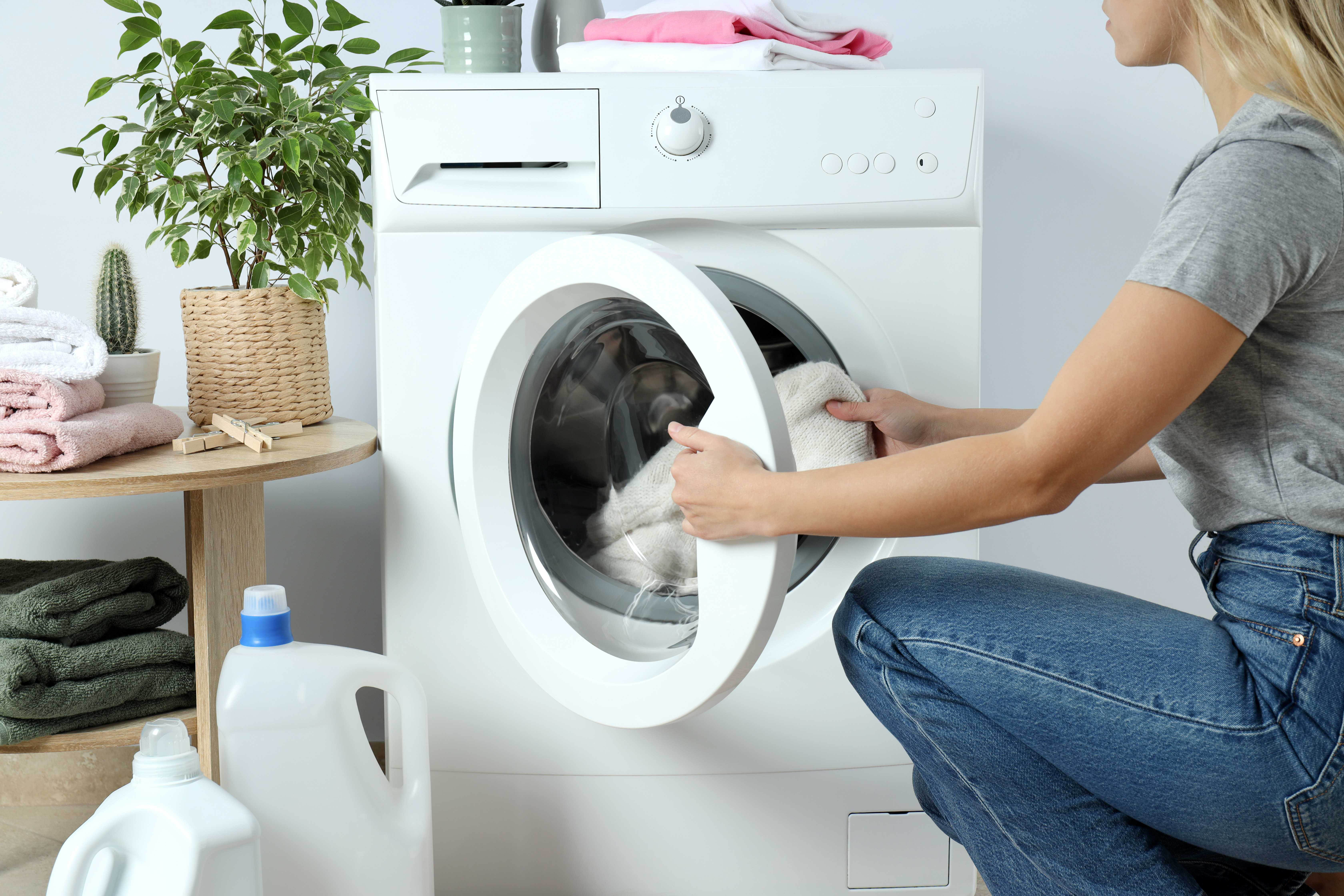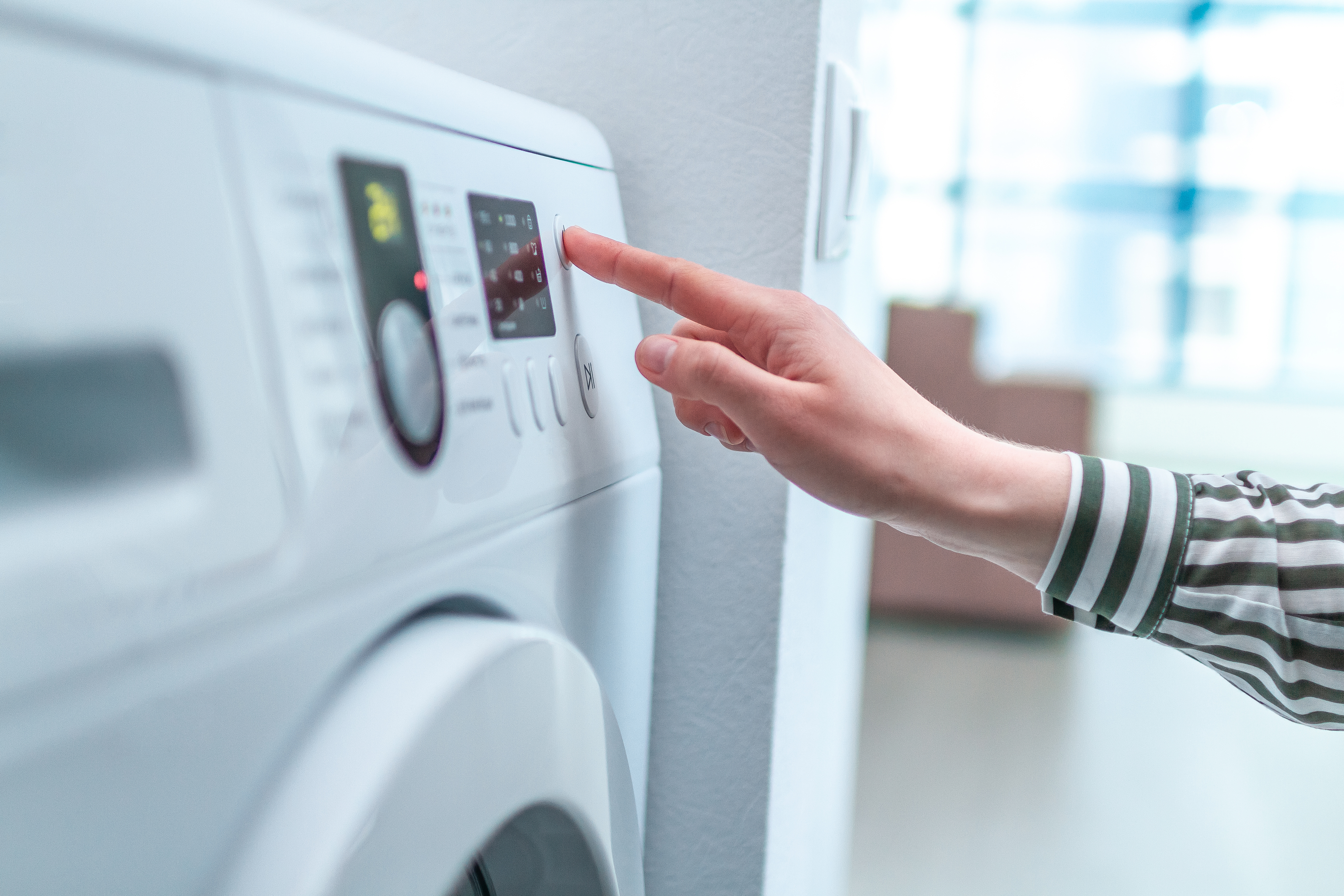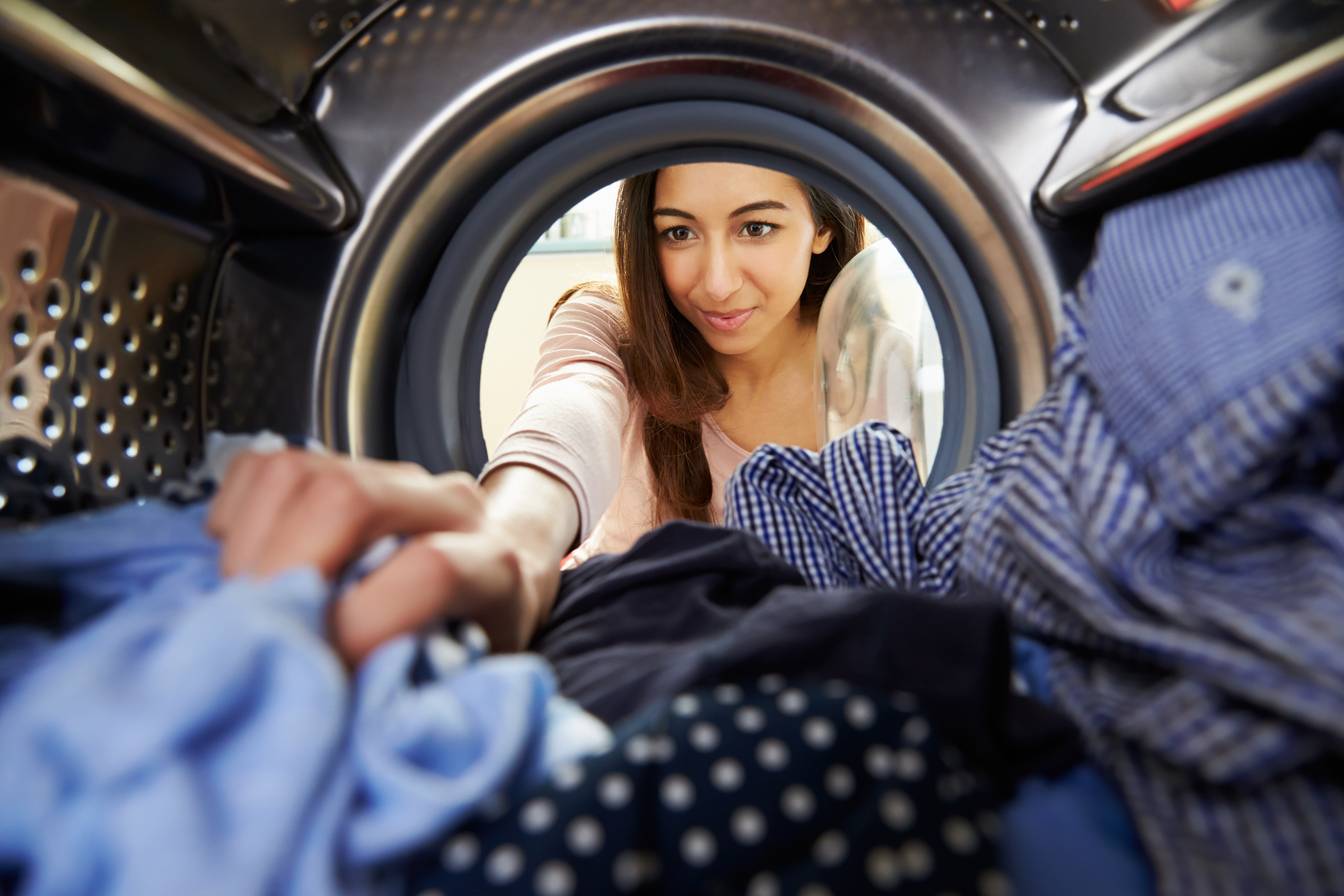Laundry – a chore nobody can escape. Whether it's a household with kids, a young couple, or students living on their own, everyone wants clean and fresh clothes. In this article, let's take a closer look at how much a single wash roughly costs and how we can save on this essential task.

How Much Does One Wash Cost?
Calculating the cost of a single wash requires factoring in several key elements, such as energy and water consumption, as well as the costs of laundry detergents and fabric softeners. Let's dive in and explore the average values that'll help us estimate the total expenses.
-
Energy consumption
A typical washing machine can gulp down about 1 kWh per laundry cycle. The price for a kWh of electricity averages around €0.30.
-
Water consumption
A washing machine slurps up around 50 litres of water per laundry cycle. The price tag for one cubic metre of water (1000 litres) is €3.50. That's a whopping €0.18 just for water for one wash.
-
Costs of laundry detergents and fabric softener
Laundry detergents: The average price for a dose of laundry detergent can range around €0.20.
Fabric softener: The price for a dose of fabric softener can be approximately €0.10.
Cost Calculation
By adding up the costs of energy, water, and laundry detergents, we get the total cost per wash:
€0.30 (energy) + €0.18 (water) + €0.30 (laundry detergents and fabric softener) = €0.78
The average cost per wash can therefore reach approximately €0.78. However, it is worth noting that these costs may vary depending on local energy and water prices, the type of laundry detergent and fabric softener, as well as the efficiency of your washing machine.
8 Tips on How to Reduce Laundry Costs
Approximately 11% of total household water consumption is used for laundry. However, there are ways to reduce these costs while minimising the negative environmental impacts of washing.
1. Use Eco-friendly Laundry Programs

Modern washing machines are mostly equipped with various economical or eco programs designed to minimise water and electricity consumption. These programs may take longer to wash, but they use up fewer resources.
2. Wash at Lower Temperatures
Washing at a temperature of 30°C can save more than 38% of energy compared to washing at 40°C. This is because a significant portion of the energy used by the washing machine is for heating water.
By taking this measure, not only will you save energy, but you will also extend the life of your clothing because higher temperatures can damage it. Most modern washing machines offer the option of washing at lower temperatures. Also, don't forget to choose a laundry gel specifically designed for washing at low temperatures. If you don't have one yet, get one.
3. Fill the Washing Machine Just Right
Optimal loading of the washing machine is key to efficient washing. The washing process relies on the friction of clothing against each other, which can only be achieved when the washing machine is properly loaded - neither too full nor too empty.
An overloaded drum hinders efficient movement of clothing, restricts water and detergent access to the fabric, and prevents effective dirt removal. Conversely, too little clothing in the drum means that fabrics do not touch enough to effectively remove stains.

4. Take Advantage of Low Electricity Tariffs
Check with your electricity provider if they offer day and night tariffs and find out during which times electricity consumption is significantly cheaper. If possible, try to use electricity during the off-peak hours when the price per kWh is lower. This way, you can achieve significant energy savings in your household.
5. Air Drying
If possible, avoid using a dryer and let your laundry dry naturally in the air. Dryers are one of the biggest energy consumers in households.
6. Do Not Underestimate Washing Machine Maintenance
Residues of laundry detergent and textile fibres can cause serious problems with the functionality of the tachometer, water metre, and electricity consumption metre.
Therefore, regular and thorough cleaning is necessary for its proper functioning. This way, you will prevent clogging of filters, accumulation of dirt in the drum, and in the detergent dispenser.
7. Use Quality Laundry Detergents
Quality laundry detergents are often more effective, and you will need less of them per wash, which can save you a significant amount of money in the long run.
8. Replace Fabric Softener With Laundry Perfume
Puella laundry perfumes are designed to provide long-lasting and intense fragrance, thereby avoiding the need for frequent use of fabric softener, which can be more financially demanding in the long run.
Moreover, thanks to the concentrated form of Puella Perfumes, you will use a smaller amount of the product per wash, which also contributes to savings.

